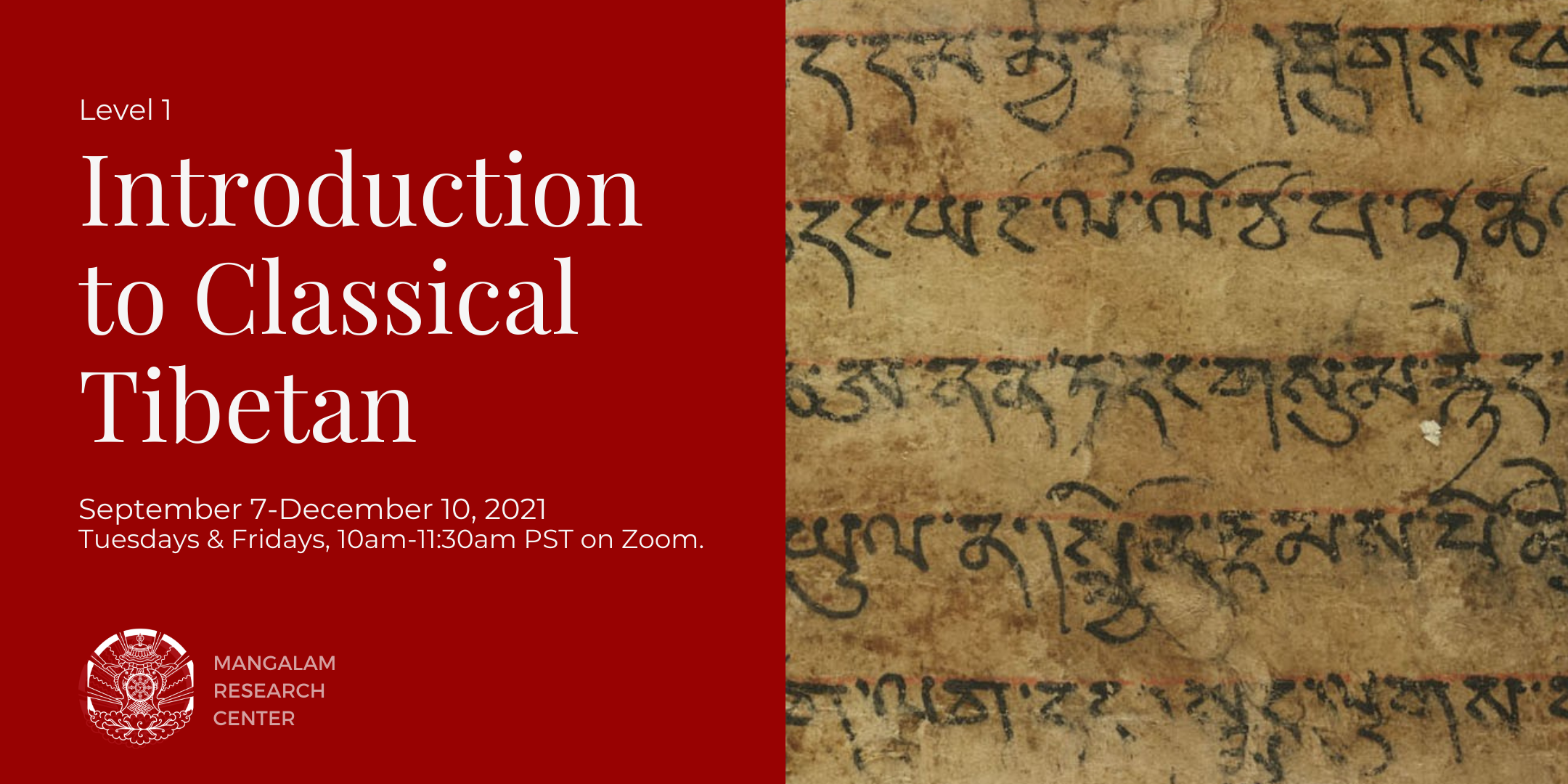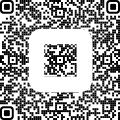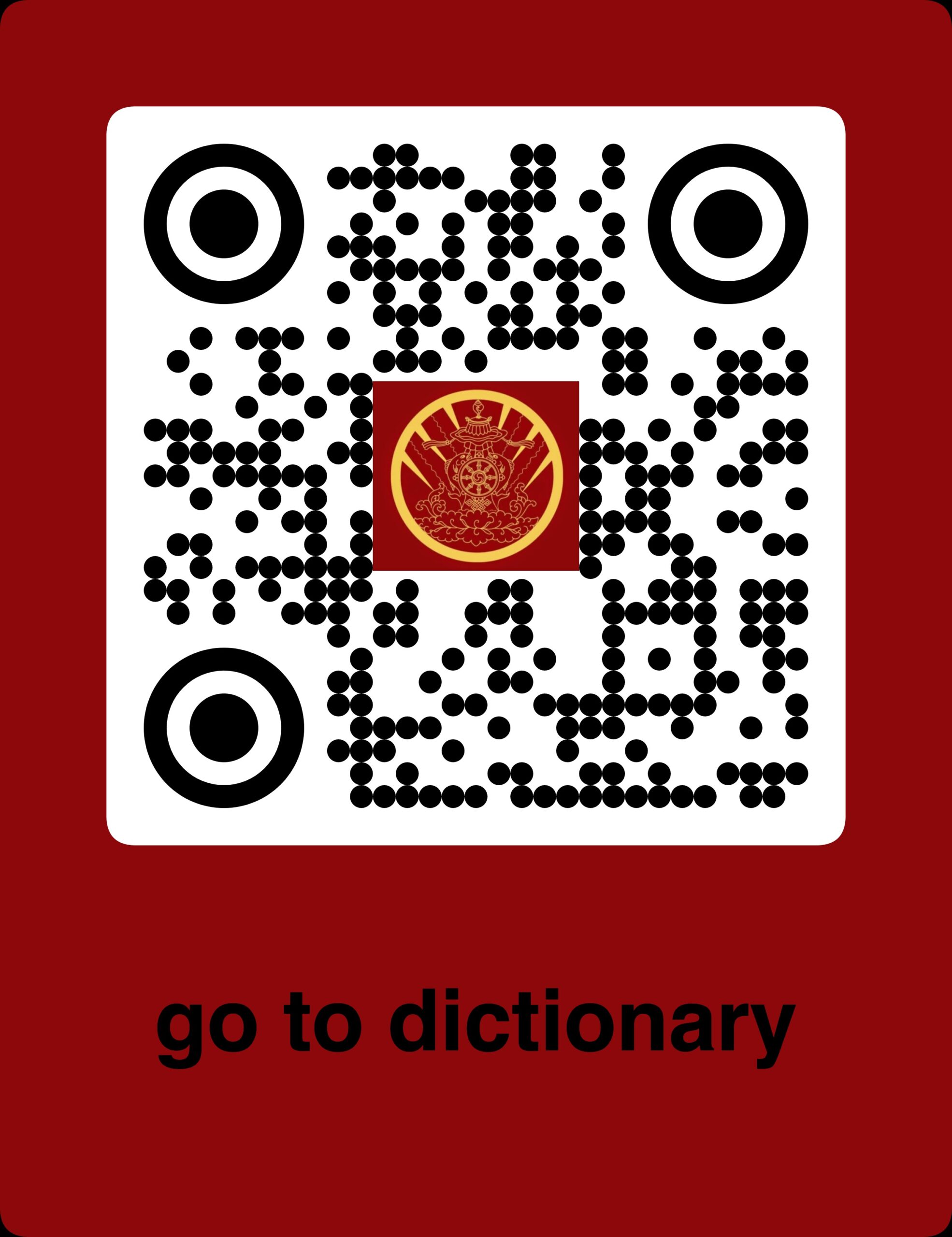
Classical Tibetan for Dharma Students
Introduction to Classical Tibetan, Level 1 (online)
This course is designed for students of Tibetan Buddhism, but anyone with an interest in the Tibetan language and Tibetan religious literature is welcome. The aim of the course is to enable students to read original classical Tibetan texts as soon as possible. We will take a learning-by-doing approach, which means that the participants will acquire language skills through active learning and participation. During the twelve weeks of the course, students will gain the ability to read and understand a selection of manageable, short Tibetan texts, and start building vocabulary.
The course will cover reading and writing the Tibetan Uchen (dbu-can) script and Wylie transliteration; Tibetan word formation; vocabulary; grammatical function-markers; introduction to the Tibetan verb system, grammatical roles and arguments, and Tibetan syntax. It will also introduce students to online and print Tibetan grammar and dictionary resources. Topics in Tibetan Buddhist doctrine and history will be discussed as we work with the texts. At the end of the course, a pass/fail exam will be offered to assess progress and areas that might need review ahead of proceeding to Level 2.
Tuesdays & Fridays, 10am-11:30am PST.
September 7-December 10, 2021 (no class the week of October 11 or November 22)
Priority Registration Deadline: Sunday, August 22.
Registrations will continue to be accepted as space allows.

Structure of the course:
We will meet for two 90 minute online classes per week. We will start each class with the recitation of a famous Tibetan poem that invokes the qualities of Mañjuśrī, the bodhisattva of wisdom. Short presentations on Tibetan grammar and vocabulary and/or revision will be followed by reading (aloud), analyzing, and translating passages of Tibetan texts from our textbook.
Homework: Weekly homework assignments will consist in memorizing vocabulary, independent grammar review, and preparing grammatical analyses and written translation drafts for class. Participants will be asked to create (handwritten) vocabulary flashcards and their own “Tibetan grammar cheat sheet” during Level 1.
Readings will be drawn from Yael Bentor’s Classical Tibetan Reader. (It is recommended that students purchase a hard-cover copy of the book before the course starts): https://wisdomexperience.org/product/classical-tibetan-reader/
The first reading will be the life story of the famous mahāsiddha Saraha.
There are no prerequisites for Level 1. However, prospective students are encouraged to familiarize themselves as much as possible with the Tibetan script before the start of the course. Numerous Web-resources are available. The following provide a good initial overview:
https://sites.google.com/view/chrisfynn/home/tibetanscriptfonts
https://www.omniglot.com/writing/tibetan.htm
https://en.wikipedia.org/wiki/Tibetan_script
A series of videos on how to write Tibetan Uchen script is available free of charge from Cornell University: https://sales.lrc.cornell.edu/collections/tibetan
Tuition: $300-$1800.
About the Instructor:
Bruno Galasek-Hul holds a Ph.D. degree in Classical Indology from the University of Bonn, Germany, where he also studied Tibetan and the History of Indian Arts. He received further graduate and postgraduate training under Prof. Richard Gombrich at the University of Oxford and during a two-year visiting scholar appointment at the University of California in Berkeley. From 2013 to 2015 he was a postdoctoral fellow at the Mangalam Research Center for Buddhist Languages in Berkeley. From 2015 to 2018 he taught survey courses on Buddhist traditions at the Institute of Buddhist Studies in Berkeley. Since 2015 he has been working in two international lexicographic projects and as lead translator of the Ānandaśrī Translation Team in the Kangyur translation project 84000: Translating the Words of the Buddha. He works with a variety of canonical Buddhist texts written in Pāli, Sanskrit, and Tibetan. Bruno lives with his family on the beautiful Redwood Coast in rural Northern California.
For questions, email brunog@mangalamresearch.org
Speaker
-
Bruno Galasek-Hul

